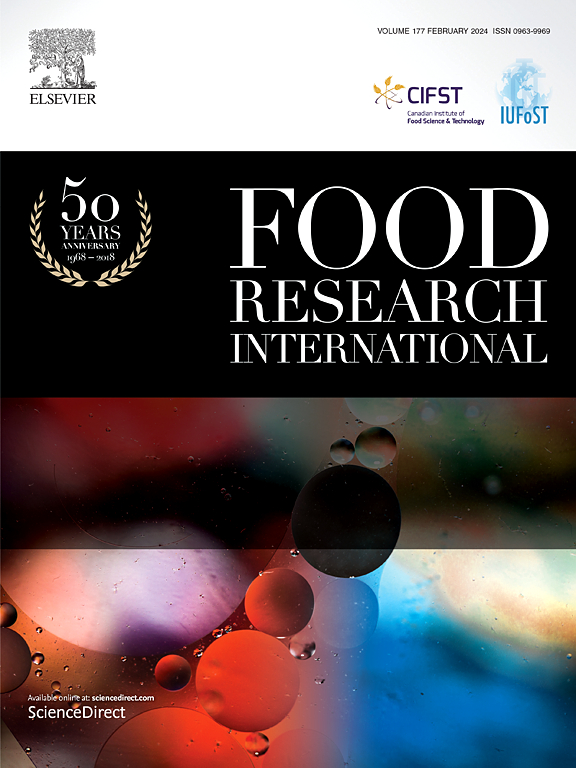Hydroxylation of dihydromyricetin via Beauveria bassiana fermentation enhances its efficacy in improving insulin signaling: Insights into inflammation, oxidative stress, and endoplasmic reticulum stress
IF 8
1区 农林科学
Q1 FOOD SCIENCE & TECHNOLOGY
引用次数: 0
Abstract
Chronic metabolic diseases, particularly insulin resistance (IR) and diabetes, pose significant global health challenges. This study introduces a novel hydroxylated dihydromyricetin (DHM) derivative, 8-hydroxy-DHM (H-DHM), produced via microbial fermentation using Beauveria bassiana. Notably, hydroxylation significantly enhances the efficacy of DHM in glucose consumption, glycogen synthesis, and glucose transport, while inhibiting gluconeogenesis in an IR-HepG2 cell model. This indicates that hydroxylation of DHM can enhance its regulation of glucose metabolism. Mechanistic investigations reveal that H-DHM regulates the JNK/PI3K/AKT signaling pathway by reducing inflammation, oxidative stress, and endoplasmic reticulum stress. These findings highlight the potential of hydroxylated DHM as a promising candidate for dietary and clinical interventions in IR management. Furthermore, this research provides new insights into the modification of natural flavonoids through microbial fermentation, presenting an innovative strategy for managing and preventing chronic metabolic diseases.

通过白僵菌发酵的二氢杨梅素羟基化增强了其改善胰岛素信号传导的功效:对炎症、氧化应激和内质网应激的见解
慢性代谢性疾病,特别是胰岛素抵抗(IR)和糖尿病,对全球健康构成重大挑战。本研究介绍了一种新的羟基化二氢杨梅素(DHM)衍生物,8-羟基DHM (H-DHM),由球孢白僵菌微生物发酵产生。值得注意的是,在IR-HepG2细胞模型中,羟基化显著增强DHM在葡萄糖消耗、糖原合成和葡萄糖运输方面的功效,同时抑制糖异生。说明DHM羟基化可以增强其对葡萄糖代谢的调节作用。机制研究表明,H-DHM通过减少炎症、氧化应激和内质网应激来调节JNK/PI3K/AKT信号通路。这些发现突出了羟基化DHM作为IR管理中有希望的饮食和临床干预的潜力。此外,本研究为通过微生物发酵对天然黄酮类化合物进行修饰提供了新的见解,为慢性代谢性疾病的管理和预防提供了新的策略。
本文章由计算机程序翻译,如有差异,请以英文原文为准。
求助全文
约1分钟内获得全文
求助全文
来源期刊

Food Research International
工程技术-食品科技
CiteScore
12.50
自引率
7.40%
发文量
1183
审稿时长
79 days
期刊介绍:
Food Research International serves as a rapid dissemination platform for significant and impactful research in food science, technology, engineering, and nutrition. The journal focuses on publishing novel, high-quality, and high-impact review papers, original research papers, and letters to the editors across various disciplines in the science and technology of food. Additionally, it follows a policy of publishing special issues on topical and emergent subjects in food research or related areas. Selected, peer-reviewed papers from scientific meetings, workshops, and conferences on the science, technology, and engineering of foods are also featured in special issues.
 求助内容:
求助内容: 应助结果提醒方式:
应助结果提醒方式:


